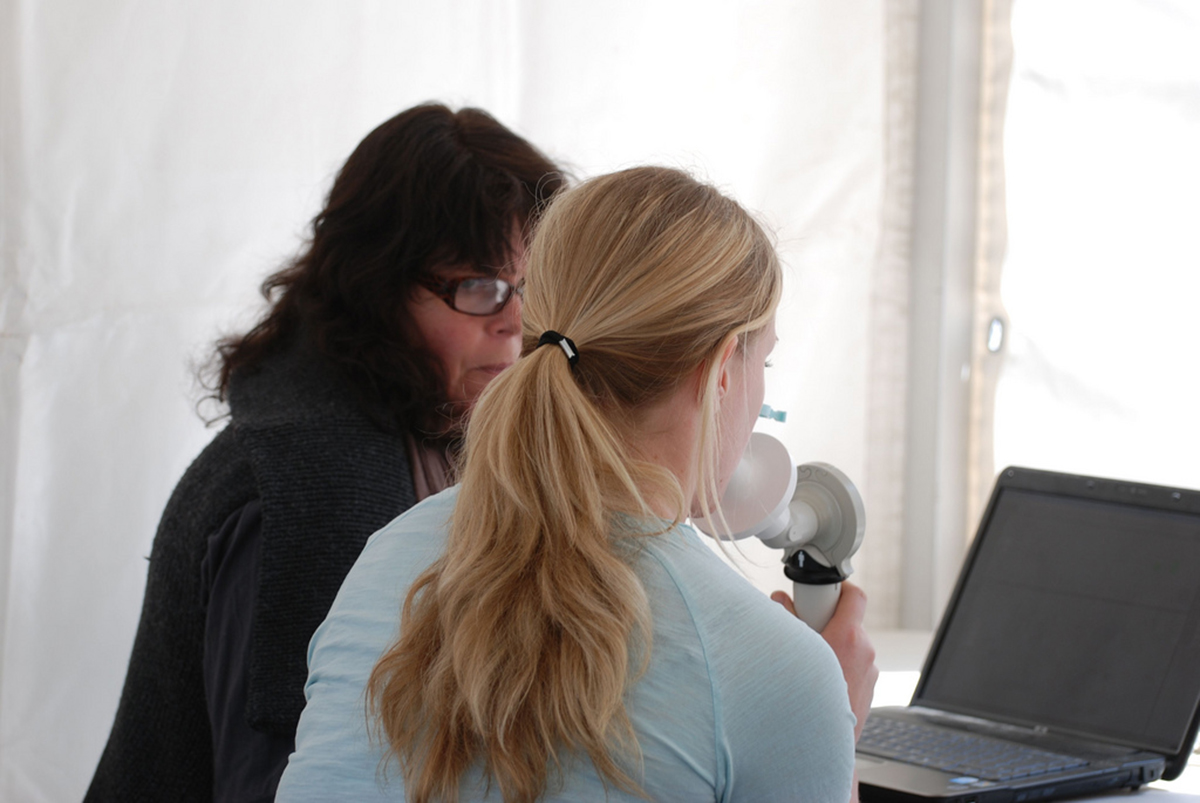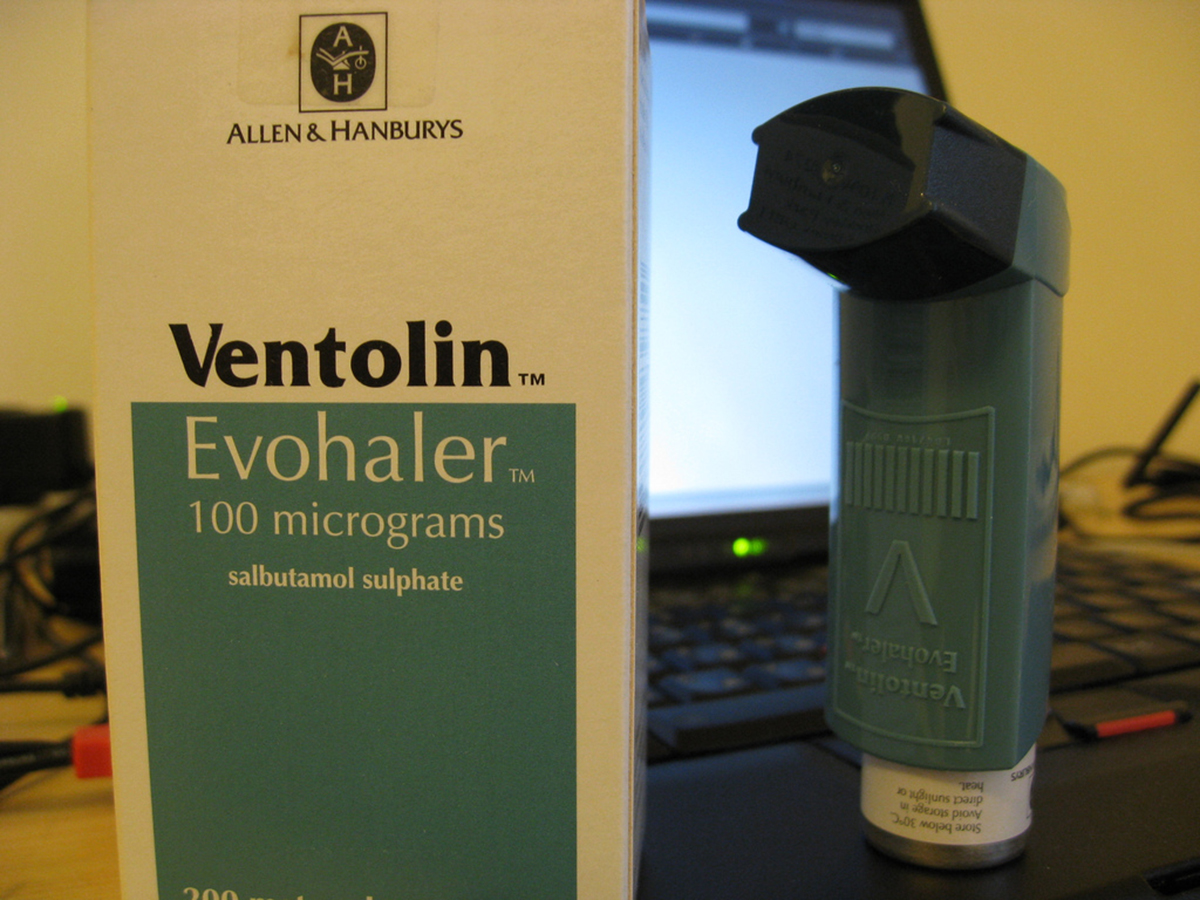Millions of Americans suffer from asthma, which is a lung disease that makes it difficult to breathe. While there is no cure for the condition, it can be managed and treated. Asthma is a chronic disease and it can be serious or life-threatening, but the more a person learns and becomes educated about the disease the better their life will be.

What Is Asthma?
When a person breathes, air passes through the nose, down into the throat and enters the lungs. Inside the lungs are branching airways and with asthma these can become inflamed and swollen. This makes a person extra sensitive to things that they are exposed to in the environment. Each person has triggers which are something like the cold, the weather or environmental elements such as dust, chemicals, smoke and pet dander. Triggers can bring on an asthma attack and it results in airway swelling and extra mucus formation.
Asthma can start at any age and some people have it when they are very young. Asthma can show up and the symptoms can go away, but return later in life. Some people get asthma for the very first time as an adult.
Causes Of Asthma
The precise cause of asthma is unknown, but it does tend to run in families and may be inherited. Other things which could cause asthma include environmental factors. Scientists continue to explore what could cause asthma, but there are certain things that can play a role into its development and these include:
- Respiratory infections: As the lungs develop during infancy and early childhood, certain types of infections have been proven to cause inflammation and damage to the lung tissue. This damage can result in a weakened immune system that leads to asthma.
- Genetics: The disease tends to run in families. Genetics and heredity play an important role in causing asthma. If a child’s parents have asthma it means they have a higher than average risk of developing it.
- Environment: Having contact with allergens, pollutants or being exposed to viral infections as a baby or in early childhood when the immune system is developing has been linked to asthma.
- Allergies: Allergies tend to run in families and certain ones can be directly linked to people who get asthma.
Complications
There are many complications a person can experience with asthma. The symptoms of the disease can interfere with work, sleep or recreational activities. A person could miss work or school due to asthma flare-ups. The permanent narrowing of the airways can affect how well someone is able to breathe. Additionally, there may be emergency room visits and hospital stays due to severe asthma attacks and there could be side effects from some of the medications a person must take to stabilize their asthma.
See Also: Managing And Treating Persistent Asthma
Diagnosis
In order to rule out other conditions like a respiratory infection or a pulmonary disorder, a physician will perform a physical examination and ask a person about their signs and symptoms and any other possible health problems. However, it is impossible to diagnose asthma strictly based on a physical examination.
Tests For Diagnosing Asthma
To confirm a diagnosis of asthma, a variety of other tests could be performed and these include:
- Spirometry: This test is performed to estimate the narrowing of the bronchial tubes by checking how much air a person can exhale after a deep breath and how fast it can be breathed out.
- Peak flow test: A peak flow meter is a simple device that measures how hard a person can exhale. Lower than peak flow measurements are a sign that a person’s lungs may not be working as well as they should be and that maybe their asthma is getting worse. A doctor will advise an individual on how to track and monitor peak flow measurements.

Medications and Treatment
The key to living a quality life with asthma is to prevent attacks before they happen through prevention and long-term control. Treating asthma usually involves learning to recognize triggers, taking steps to avoid these triggers and keeping track of one’s breathing to make sure daily asthma medications are working properly for symptom control. In case of an asthma attack or flare-up, a person needs to carry a rescue inhaler with them at all times.
Long-term asthma controlling drugs will reduce inflammation in the airways that can lead to a flare-up or full blown asthma attack. Quick acting inhalers or bronchodilators are responsible for opening the airways and helping to improve breathing. Some of the other medications a person may be given for asthma includes:
- Inhaled corticosteroids
- Long-acting beta agonists
- Leukotriene modifiers
- Ipratropium
- Oral and intravenous corticosteroids
- Combination inhalers
- Theophylline
- Short-acting beta agonists
New Research
Recently, medical and scientific researchers from the University of California, San Diego School of Medicine, have uncovered a signaling pathway that is important to the immune response of cells that are linked to allergic asthma.
The research team established that T helper 2 type of inflammation in allergic asthma includes dendritic cells (DC). Dendritic cells are white blood cells that activate a decrease of cyclic AMP or cAMP, cAMP being a chemical messenger inside of cells. Using mouse models, the team was able to delete the gene that codes for protein which stimulates the production of cyclic AMP.
The findings of the study are very different from the current view medical science has regarding the activation of specific T helper cell responses. The immune response of people, mice and other vertebrates consists of two fundamental components. The first is within the innate immune system that recognizes and responds to pathogens. The second way is the adaptive immune system where specialized T and B cells will eliminate pathogen growth and create immunity in the event of any future encounters with the same pathogen.
T helper cell immunity is one of two major types of adaptive immunity. T helper cell 1 responses target intracellular pathogens like bacteria and viruses that invade cells. The T helper cell 2 response is more effective against extracellular pathogens and also play an important role in allergic responses and related disorders.
See Also: CPAP: New Drug-Free Treatment For Asthma
The new research opens the door for exploring DC-related molecules as mediators that influence T helper cell 2 induction and further investigation is required to identify the precise role of these unique molecules.
- www.eurekalert.org/pub_releases/2015-01/uoc--ncp011415.php
- www.lung.org/lung-disease/asthma/
- www.mayoclinic.org/diseases-conditions/asthma/basics/definition/CON-20026992
- http://www.mayoclinic.org/diseases-conditions/asthma/basics/tests-diagnosis/con-20026992Photo courtesy of "The owner" via Flickr: www.flickr.com/photos/influcom/5697177674
- Photo courtesy of Kai Hendry via Flickr: www.flickr.com/photos/hendry/1809482109


Your thoughts on this